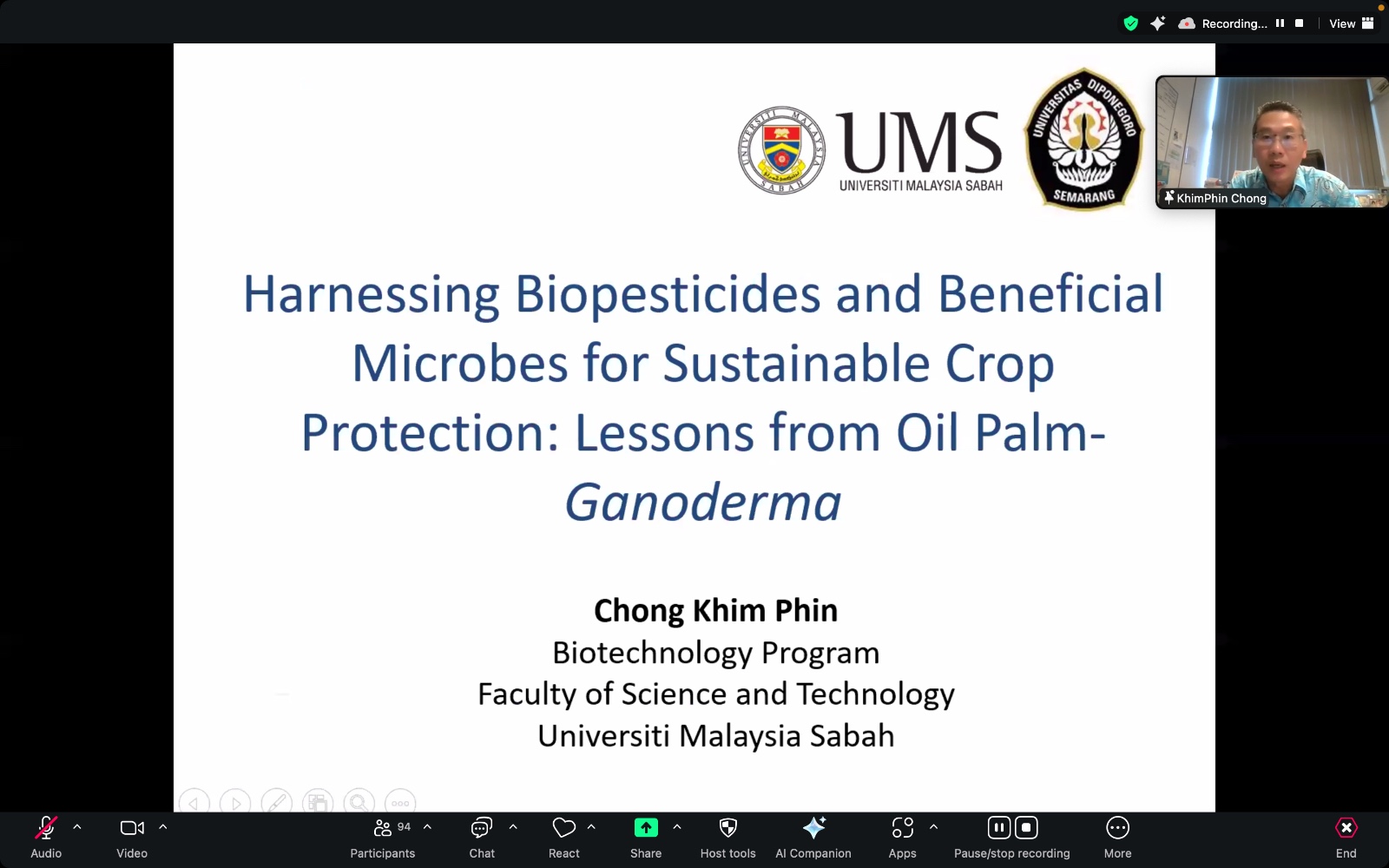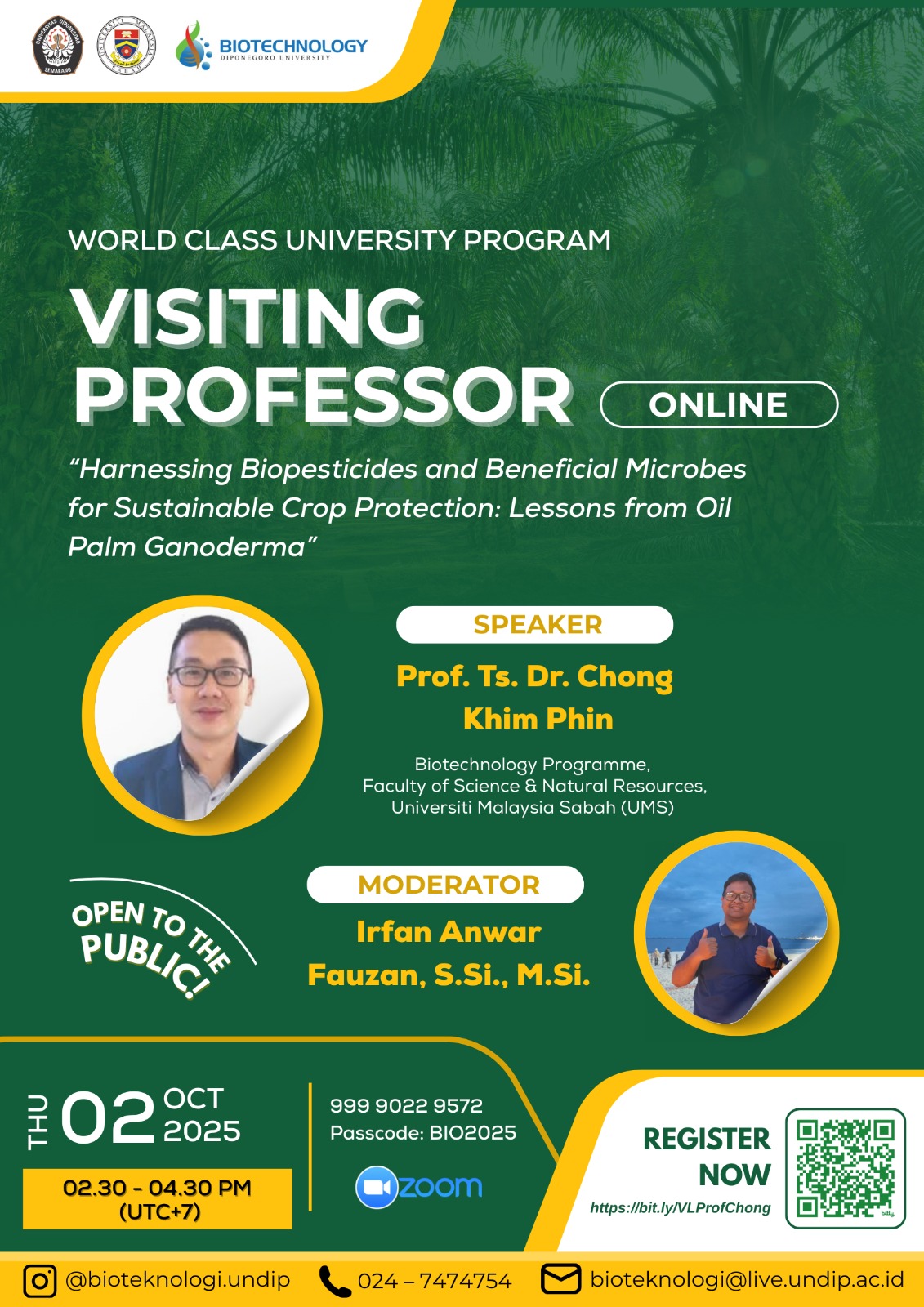Semarang, October 2, 2025 — The Biotechnology Study Program, Faculty of Science and Mathematics, Diponegoro University (UNDIP), once again hosted an international academic event as part of its World Class University (WCU) program. This time, UNDIP welcomed Prof. Ts. Dr. Chong Khim Phin from Universiti Malaysia Sabah (UMS), an expert in biotechnology and sustainable crop protection, as a Visiting Professor.
The event, themed “Harnessing Biopesticides and Beneficial Microbes for Sustainable Crop Protection: Lessons from Oil Palm Ganoderma,” was held online via Zoom on Thursday, October 2, 2025, from 2:30 to 4:30 PM (WIB). The open lecture began with an opening speech by Dr. Sri Pujiyanto, S.Si., M.Si., Chairperson of the WCU Visiting Professor Program, and was moderated by Irfan Anwar Fauzan, S.Si., M.Si., lecturer at the Biotechnology Study Program, Faculty of Science and Mathematics, UNDIP.
During the scientific session, Prof. Chong presented various innovations in the use of biopesticides and beneficial microbes as eco-friendly solutions for plant disease control, focusing particularly on Basal Stem Rot (BSR) disease in oil palm caused by Ganoderma boninense. He emphasized that combining diverse microbial strains, developing a deep understanding of pathogen–environment interactions, and implementing integrated management of crops, pests, and diseases are key strategies toward regenerative agriculture centered on soil and plant health.
Prof. Chong also shared his research findings on the effectiveness of several microbes, including Trichoderma, Bacillus, Streptomyces, and Pseudomonas, in suppressing Ganoderma growth, as well as his innovation in developing the patented eco-friendly fungicide formulation LesTani®, which has demonstrated strong efficacy in field trials. In addition, he highlighted the roles of organic acids and chitosan in enhancing the natural resistance of oil palm plants against pathogenic attacks.
Through this Visiting Professor program, Diponegoro University reaffirms its commitment to expanding international academic networks and strengthening cross-country research collaborations in agricultural biotechnology and sustainable crop protection, supporting the development of innovations that contribute to global food security.



